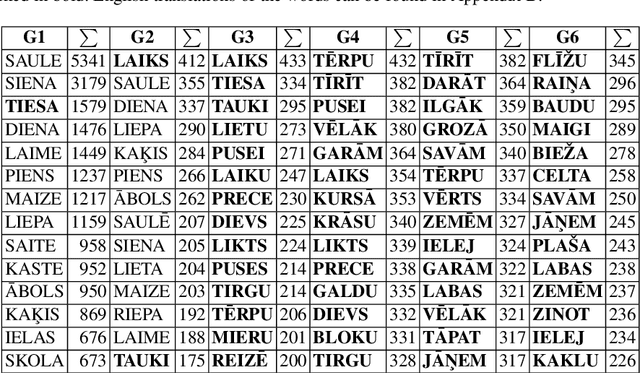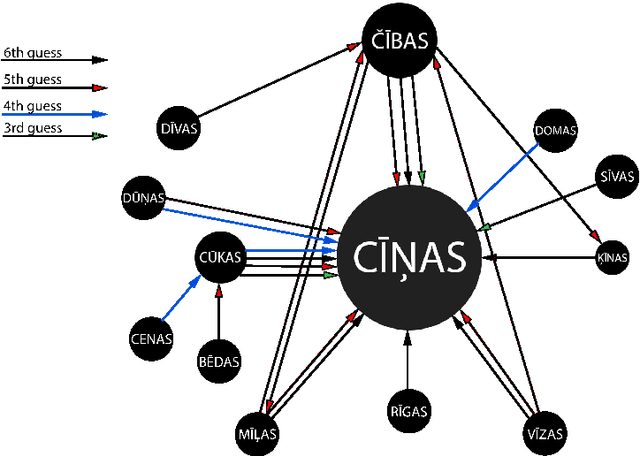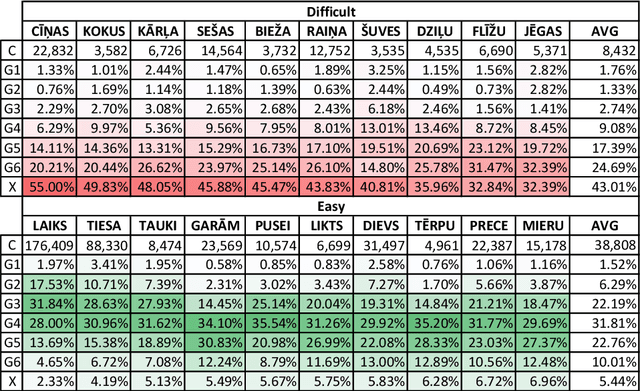Sanita Reinsone
Strategic Insights in Human and Large Language Model Tactics at Word Guessing Games
Sep 17, 2024



Abstract:At the beginning of 2022, a simplistic word-guessing game took the world by storm and was further adapted to many languages beyond the original English version. In this paper, we examine the strategies of daily word-guessing game players that have evolved during a period of over two years. A survey gathered from 25% of frequent players reveals their strategies and motivations for continuing the daily journey. We also explore the capability of several popular open-access large language model systems and open-source models at comprehending and playing the game in two different languages. Results highlight the struggles of certain models to maintain correct guess length and generate repetitions, as well as hallucinations of non-existent words and inflections.
How Masterly Are People at Playing with Their Vocabulary? Analysis of the Wordle Game for Latvian
Oct 04, 2022



Abstract:In this paper, we describe adaptation of a simple word guessing game that occupied the hearts and minds of people around the world. There are versions for all three Baltic countries and even several versions of each. We specifically pay attention to the Latvian version and look into how people form their guesses given any already uncovered hints. The paper analyses guess patterns, easy and difficult word characteristics, and player behaviour and response.
 Add to Chrome
Add to Chrome Add to Firefox
Add to Firefox Add to Edge
Add to Edge